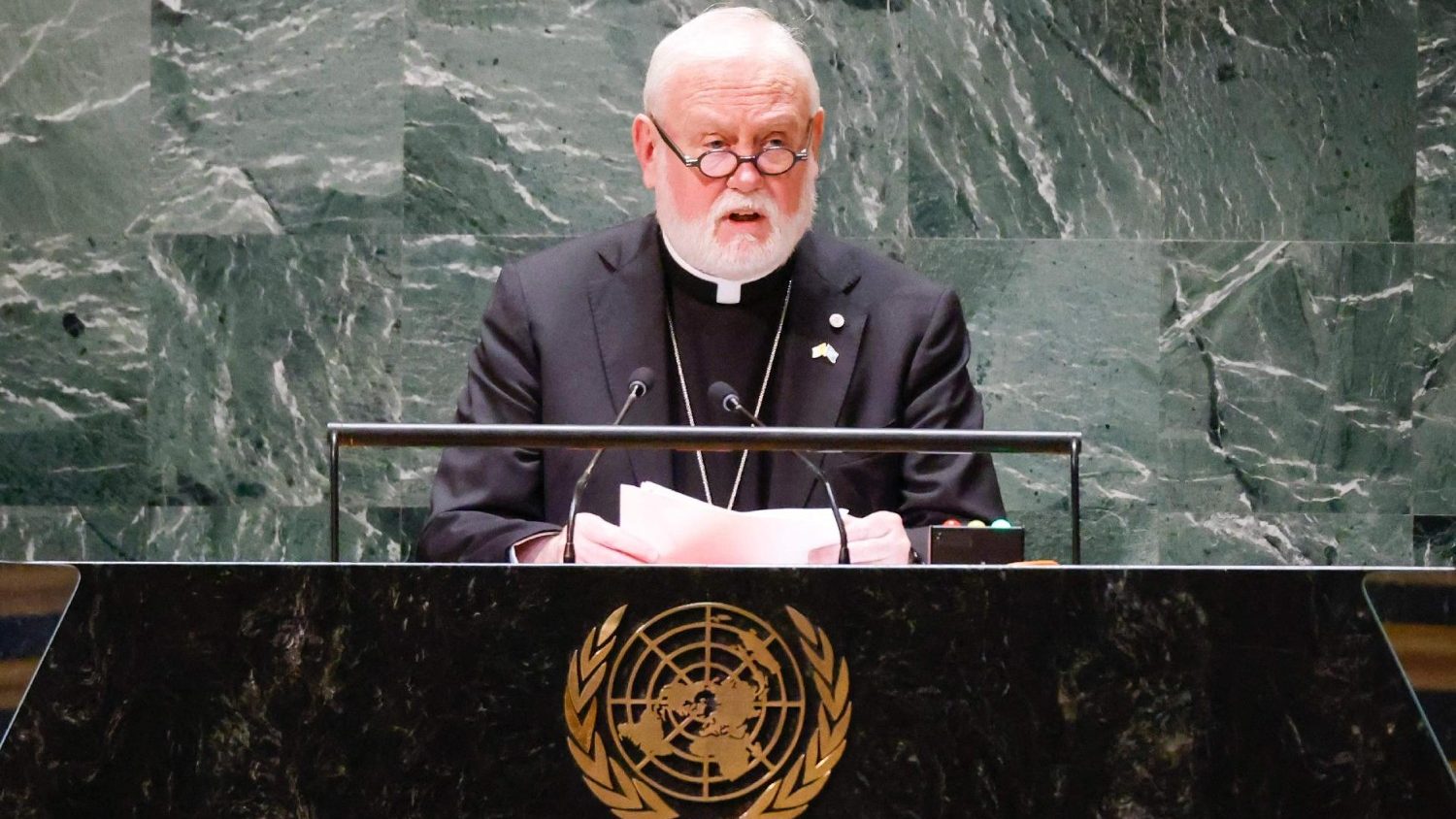Addressing the United Nations’ General Assembly, the Vatican is highlighting the need to do more for young people and to step up efforts to fight non-communicable diseases and mental health challenges.
By Sr. Christine Masivo Cps
Speaking at two UN High-Level Meetings in New York, Archbishop Paul Richard Gallagher, the Holy See’s Secretary for Relations with States and International Organisations, urged governments to recognise young people as “architects of peace and stewards of creation,” to renew their commitment to empowering youth, while also tackling the growing global health crisis.
Youth empowerment
At the commemoration of the World Programme of Action for Youth at 30, Gallagher said, “the youth face war, social injustice, hunger, inequality, and environmental exploitation.” He pointed to a troubling statistic showing that more than 20% of young people worldwide are not in education, employment, or training.
He warned that wars, social injustice, hunger, inequality, and the exploitation of both people and the environment are undermining youth potential and their awareness of their God-given dignity.
Education
Decrying that statistic, the archbishop noted that such exclusion fosters isolation and increases the risk of mental health issues. He called for quality, accessible education that respects cultural, social, political, and spiritual dimensions, while underlining the importance of protecting fundamental rights, including freedom of religion and belief.
Archbishop Gallagher also underscored the vital role of families in shaping responsible adults through intergenerational dialogue. Quoting Pope Leo XIV, he appealed to young people to embrace their mission of hope, peace, and harmony: “The world looks to you, we need you, we want you to come together to share with us in this common mission.”
Mental health and communicable diseases
Later, addressing the Fourth High-Level Meeting on the Prevention and Control of Non-Communicable Diseases (NCDs) and the Promotion of Mental Health and Well-being, the Vatican representative emphasised that health is a fundamental human right and a cornerstone of integral human development. He reminded delegates that NCDs and mental health conditions remain leading causes of death and disability, especially in low- and middle-income countries.
“Ensuring health and well-being for all is inseparable from eradicating poverty,” he said, calling for universal health coverage with a strong focus on primary healthcare, prevention, and timely treatment.
He also drew attention to the alarming number of suicides, particularly among young people. “Society has the vital duty to affirm the sacredness of life and the God-given dignity of those temporarily unable to recognise it themselves,” he stressed, firmly rejecting assisted suicide as incompatible with medical ethics and human dignity.
Archbishop Gallagher reaffirmed the Catholic Church’s commitment to providing healthcare and promoting wellbeing, especially among the poor and vulnerable, through its institutions worldwide.
Appeal
In both addresses, the Archbishop pointed to the interconnectedness of youth empowerment and health, saying the international community has a shared responsibility to ensure dignity, hope, and a better future for all.
